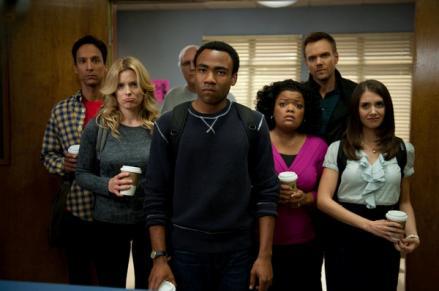Wait, Jeff and Britta and Annie are the bad guys? The clever twist at the end of last week’s Community had the study group discovering that they are, in fact, “the Germans” (read: the “villains”) of Greendale. The gang have to take a long, hard look at themselves. It baffles them that they could be the bad guys (who have hogged the study hall for three years unchallenged, at least until now), and not the good guys that they thought they were. Everything is not in fact all about them.
Of course, this is a TV show, so everything is all about them. The inherent nature of most television shows—even the ones like Community that are built around an ensemble—is that the story concerns only a select few characters and their problems. We’re willing to follow those characters around and see everything solely from their point of view, regardless of how myopic and insular this may be. We tend not to question minute dynamics, like how the group had total access to the room at all times, just like we don’t think twice when the characters in Sex and the City or How I Met Your Mother always sit at the exact same table in their favorite lunch or bar spot.
And not only is Community beholden to the logistics of sitcom storytelling, but it also features—in the tradition of Seinfeld—extremely self-involved characters. Several other classmates have attempted, and failed, to join their impenetrable cohort, including Buddy (Jack Black) in Season 1, Fat Neil during a game of Dungeons & Dragons in Season 2, and Chang throughout much of the series. Even when we get multiple storylines for the seven in Community, we’re still getting a singular vision of that study group as they see their world, where their interactions are primarily with one another, and only occasionally concern outsiders.
The ending of the latest episode suggests that they have learned to play with others: “Family is more than just the seven of us,” Jeff profoundly declares in a voice-over accompanied by a montage of the group turning an abandoned room into a new study space. “And everyone deserves to have what we have.” Have they changed for the better? On the surface, their actions seem selfless. But then, they’re back in their more spacious, beloved learning environment of old. Presumably, everyone else will have to duke it out over the new room and leave them alone.
